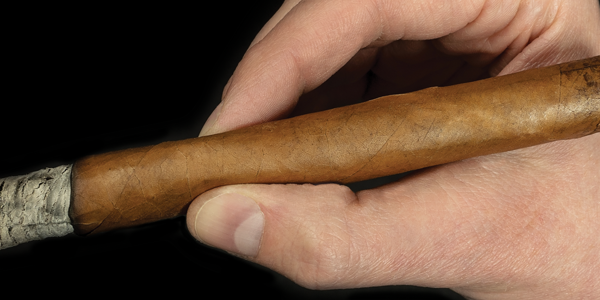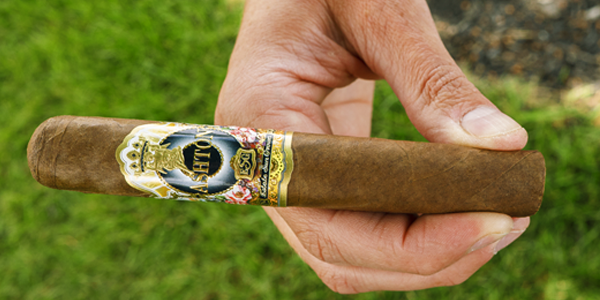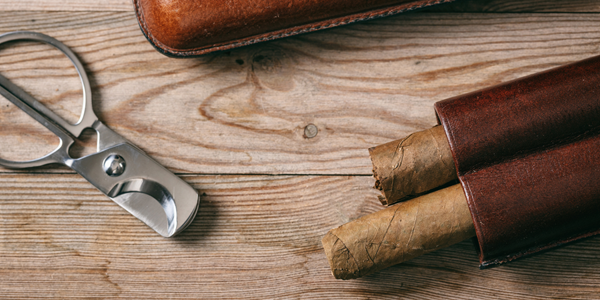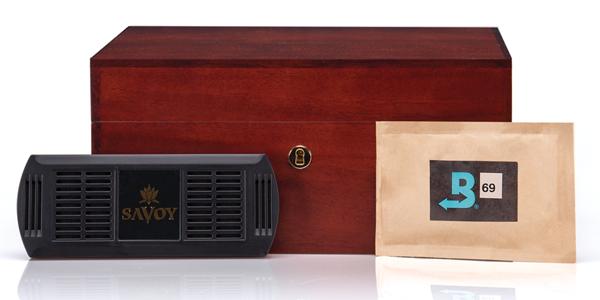Why Are My Cigars Soft When I Smoke Them?
It’s natural for a premium cigar to soften as you smoke it. As the oils in a cigar heat up, you may notice the cigar softens a bit, but it shouldn’t negatively impact the cigar’s draw or structural integrity. If your cigar becomes too soft while you’re smoking, it could be over-humidified or underfilled. Let’s find out why your cigars are too soft and look at how to fix them.
How Hard or Soft Should a Cigar Be?
First, not all cigars are rolled with the same density of tobaccos, therefore some cigars will naturally be softer than others. Many consumers believe softer, spongier cigars are fresher. This is not the case. When you select a cigar from the display in a premium shop and buy it, gently squeeze it between your finger and thumb, also called the pinch test. Learning the consistency of the cigars you smoke regularly is valuable. Avoid cigars that have soft spots or give too much when you squeeze them. These cigars will not burn straight.
At the other end of the spectrum, cigars that are too firm could be dried out. It’s fairly easy to tell if a cigar is dried out, though, as is will crackle or even crack when you apply the slightest pressure. You can re-humidify dry cigars, but it may take several days or weeks before you can smoke them.
Over-Humidified Cigars
The best conditions for storing cigars are 70% RH (relative humidity) and 70 degrees Fahrenheit. If the humidity level in your humidor has risen beyond 70% – a common occurrence after the reservoir is refilled – your cigars could be absorbing too much moisture. Monitor your humidity with a digital hygrometer and rotate your cigars every week or so to ensure the same cigars aren’t always closest to your humidification source. If you’ve got some over-humidified cigars, remove the humidification source from your humidor for a few days until the humidity drops down. Consider dry-boxing your cigars before you smoke them. Too much humidity can cause mold to grow on your cigars if the condition persists for too long. Also, humidity builds up faster in an airtight environment like Tupperware, a Ziploc bag, or an acrylic humidor than in a traditional cedar humidor, so it’s worthwhile to monitor these environments closely.
Underfilled Cigars
Soft cigars canoe and burn unevenly when they’re underfilled. This means the cigar roller neglected to put enough tobacco in the cigar during the rolling process. This occurrence is very rare in well-made brands known for their quality control and consistency, but you may encounter soft cigars when you buy inexpensive bundles or cigar factory seconds – cigars that were rolled by rollers who are training. However, that’s why the price is low.
Don’t Chew on Your Cigar
It’s always a bad idea to chew on your cigar. Chomping on the head will interfere with the draw and create a mess in your mouth. A cigar’s wrapper can unravel if you bite down on the cigar while you’re smoking. If the head on your cigar becomes inundated with moisture from your mouth, consider cutting the moist part of the cigar off to improve the draw.
Don’t Dip Your Cigar
Dipping your cigar in whiskey or cognac may seem like normal protocol if you saw somebody else do it, but it isn’t. Some aficionados will even lick their cigars before they light them. Neither of these practices will improve a cigar’s flavor. You only risk plugging your cigar’s draw and interfering with its burn. While cigars are humidified, they are not intended to be wet. Avoid dipping or wetting your cigar to soften it up.






